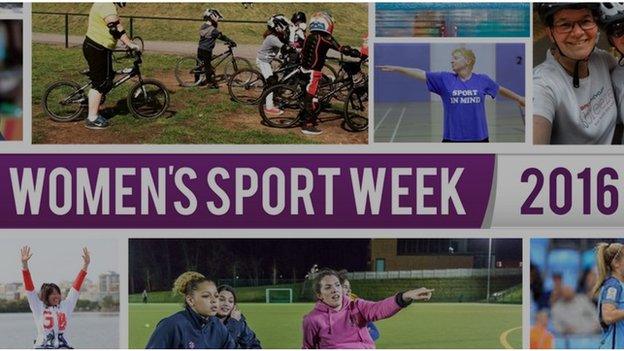Women's Sports Week 2016: Susie Wolff on women in Formula 1
- Published
Susie Wolff on how she is encouraging girls to get into motorsport
During Women's Sport Week 2016, BBC Sport will have a special column each day by a notable woman in sport. Former Williams Formula 1 test driver Susie Wolff tells us how she is hoping to get more women involved in motorsport, and why it is so difficult for a female driver to reach F1.
In my racing career, I only ever did one interview in which I wasn't asked about my gender. There is a huge misconception that motorsport is a male-dominated environment. It has been, but it is changing.
Everybody would always ask me 'why aren't there more women at the top level of motorsport?' It's simply a numbers game - there are not enough girls starting at a young age.
To make it in Formula 1, which is the absolute pinnacle, is incredibly tough no matter what your gender.
There are only 22 seats on the starting grid and you've got every young driver dreaming of F1. If you have 1,000 little boys racing between the ages of eight and 10 and only 10-20 girls, it's clear it's going to be very difficult for even one of them to make it all the way to the top.
When will we see a female driver racing in F1?
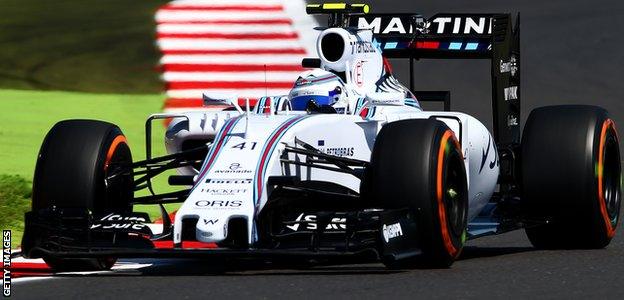
Susie Wolff took part in four practice sessions at grands prix in 2014 and 2015, worked in test sessions and in the team's simulator
The change in technical regulations next year is going to make it more difficult for a female driver to race in F1.
There is going to be more downforce and bigger tyres. All the testing so far has indicated it's a lot more physical for the drivers. In my time in F1, I never doubted I could be successful. I sadly never made it on to the starting grid of an F1 race, but during testing I completed a race distance. I knew I could drive that car fast.
A huge part of my preparation was the physical training - those were the days and hours nobody sees. I was always confident of saying that with the car regulations as they are, and F1 as it is, a woman can be successful.
With the new technical regulations though, it's going to be tougher.
It's too difficult to put a timescale on it but I would hope that within the next 10 years we'll see a female driver on the grid of an F1 race.
Society is ready for the change. It's never going to be something that happens overnight, it's going to be a long-term project. There are successful women in the paddock and in front of television cameras who are helping that wave of change. They are there are because they are the best at the job.
Inspiring the next generation
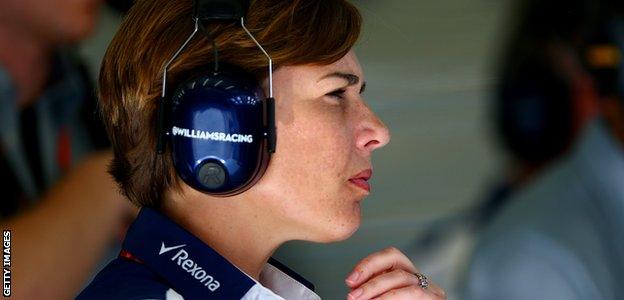
Claire Williams has been the Williams deputy team principal since 2013
It was the middle of last year when I decided to call it a day because I couldn't really progress from a test driver role. I wanted to give something back to the sport that had given me so much and, together with the Motor Sports Association [the governing body of UK motorsport], we came up with Dare to be Different,, external a concept that would introduce more girls and women to on-track racing and all the different roles within motorsport.
There are two aspects to Dare to be Different. The first is the headline events - we go around the country and get 100 schoolgirls to a racetrack or a venue where they can try karting, build a hovercraft so they can see the engineering side, and do a 'piece to camera' so they can understand journalism.
The second element is the community, where we try to get as many of the successful women already in the sport - from marshalling, engineering, racing and marketing - to connect with us so they can become role models for the next generation.
There are some girls as young as eight all the way up to 16 in karting, and some 16 and over racing in other championships. I can follow what they're doing and the whole community can follow what they're doing.
There are some girls who have managed to get very high up - Swiss Simona de Silvestro, external has just signed a three-year deal to race in V8 Supercars, while Colombia's Tatiana Calderon, external is racing in GP3. There are a select few women racers out there. Sadly, just not enough.
We've had fantastic support from the world of F1. People presume it is a very closed environment which isn't welcoming to women but all of the F1 teams have very talented women. Claire Williams [deputy team principal] knows she's a role model for the next generation because she is practically running the Williams racing team.
Sometimes in life you just have to see it to believe it.
One of the tougher parts for me coming through the various categories was the lack of a clear role model. There was no woman who had achieved what I wanted to achieve in the past 20 years. I was going into unknown territory. It's very important to me to give something back - to pass on my know-how, to give all the lessons I learned onto the next generation so they don't make the same mistakes.
Ultimately, when you're out on track with your helmet on, nobody can see the driver. Nobody can judge you on what you look like if your hair is long or short, if you're black or you're white, if you're male or female. All that matters is your performance. The stopwatch is the factor that determines your success or not.
Susie Wolff was speaking to BBC Sport's Alan Jewell
- Published14 January 2016
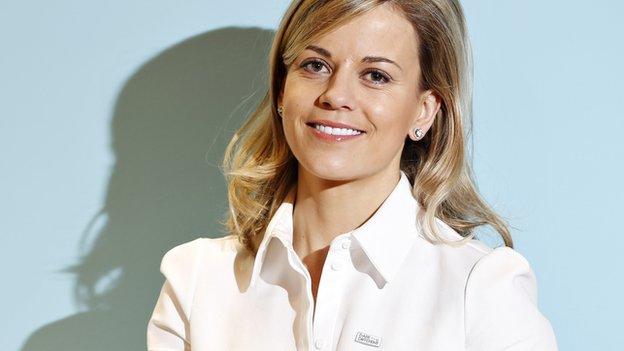
- Published7 January 2016
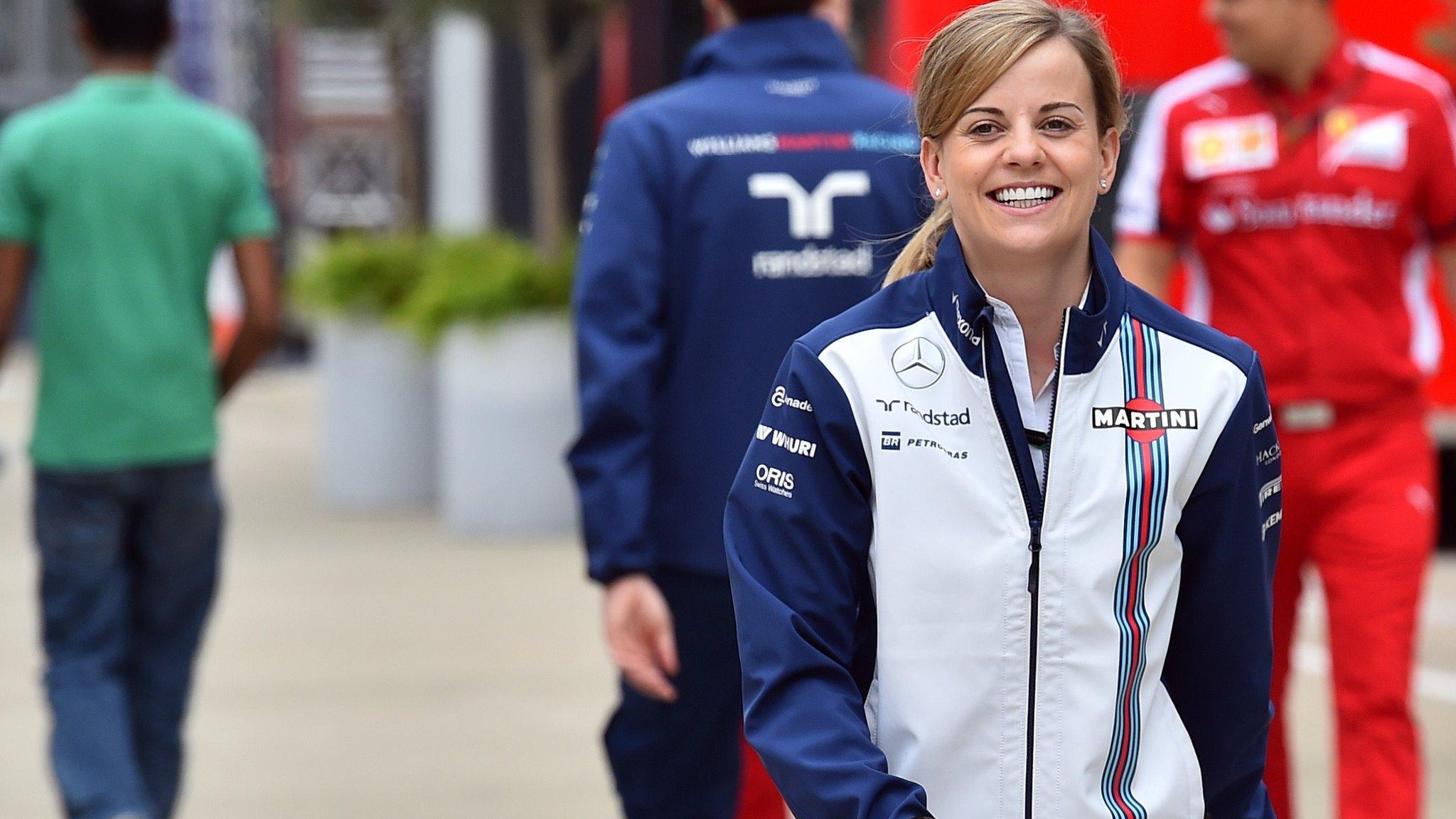
- Published2 October 2016
- Published20 April 2016
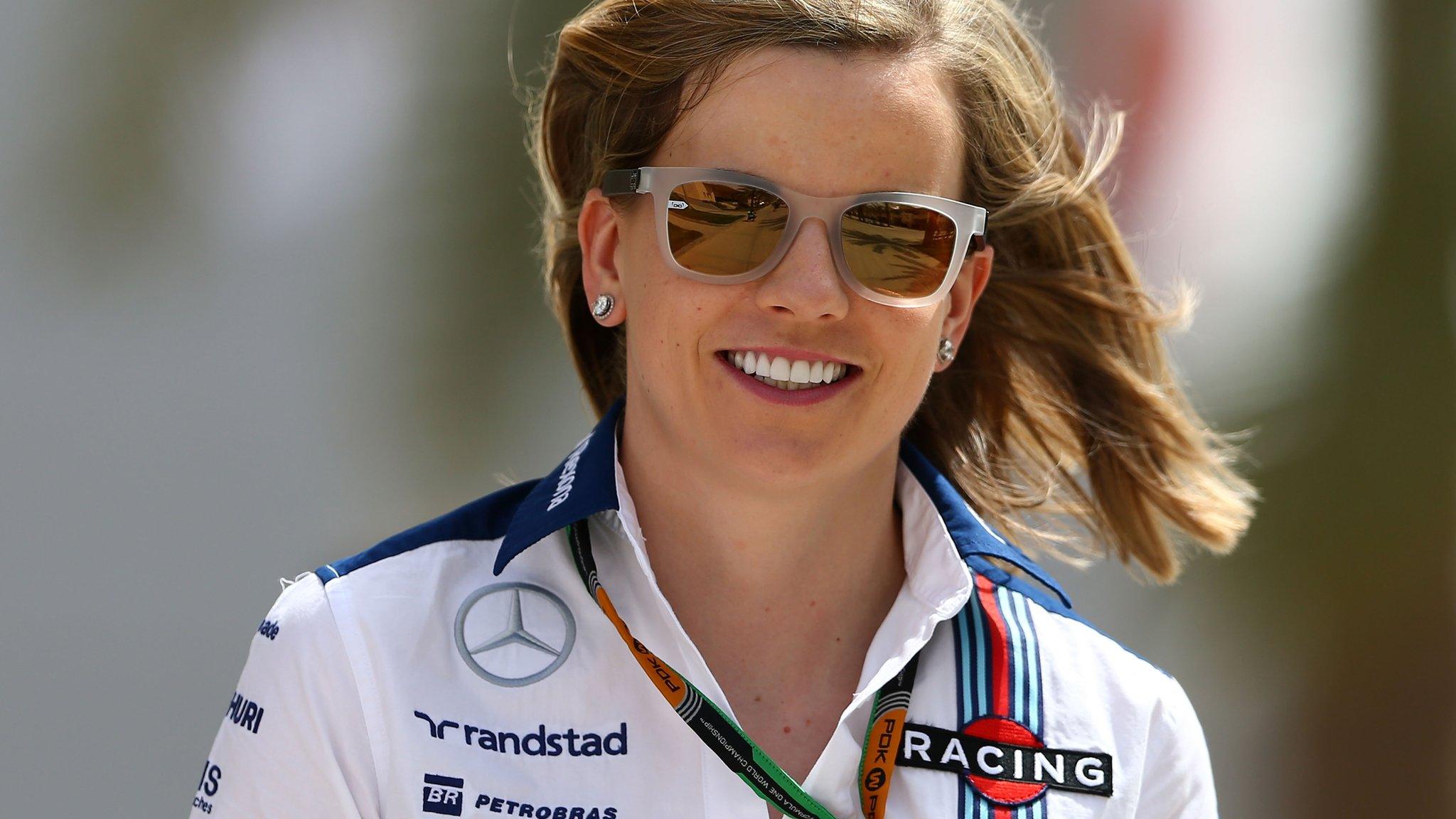
- Published3 October 2016

- Published30 September 2016
